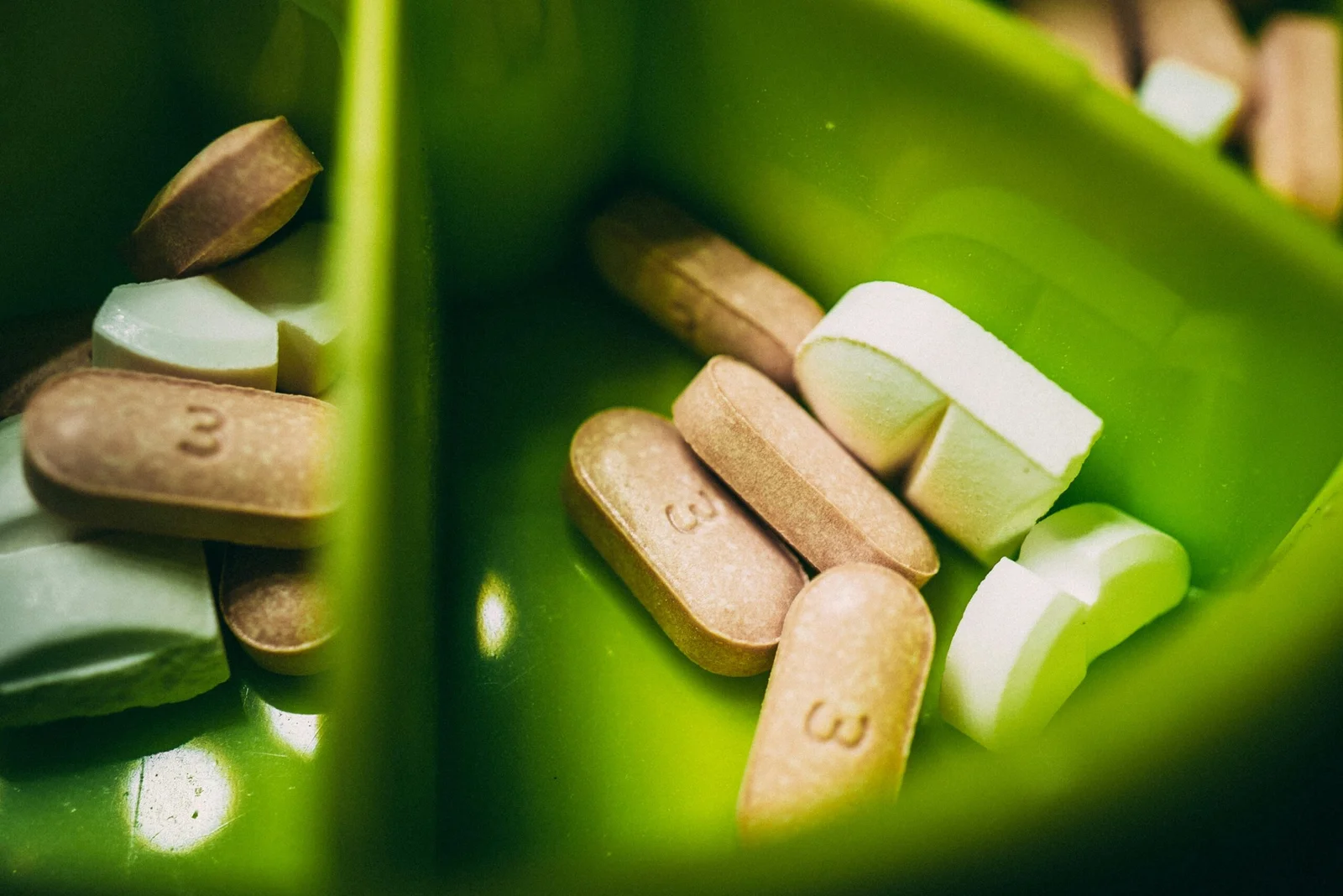In recent years, skincare has evolved from a simple routine into a science-backed discipline. With countless products flooding the market, it’s essential to know which ingredients truly benefit your skin. Grasping the science behind skincare ingredients can empower you to make knowledgeable decisions and attain healthier, more glowing skin. The skin, often referred to as the body’s largest organ, plays a crucial role in safeguarding our overall health. Comprising multiple layers, each with distinct functions, the skin forms a protective barrier against environmental threats such as UV radiation, pollution, and pathogens. Understanding the science behind skincare begins with recognizing this complex structure and its vital functions. The outermost layer, known as the stratum corneum, is composed of dead skin cells and lipids that create a barrier to prevent water loss and shield the underlying tissues. This barrier is essential for maintaining skin hydration and preventing trans epidermal water loss (TEWL). Hydration is a cornerstone of healthy skin, as it ensures elasticity, plumpness, and resilience, reducing the likelihood of dryness, irritation, and the formation of fine lines. Let’s delve into the key ingredients you should look for and the science that makes them effective.
1. Hyaluronic Acid: The Hydration Hero
What it is: Hyaluronic acid is a naturally occurring molecule in the skin, known for its incredible ability to attract and retain moisture.
Science behind it: Hyaluronic acid can hold up to 1,000 times its weight in water, making it a powerhouse for hydration. It helps to maintain skin plumpness, reduce the appearance of fine lines, and enhance the skin’s natural barrier.
How to use it: Look for serums or moisturizers with hyaluronic acid and apply them to damp skin for maximum absorption.
2. Vitamin C: The Brightening Booster
What it is: Vitamin C, also known as ascorbic acid, is a potent antioxidant that plays a crucial role in skin health.
Science behind it: Vitamin C helps to neutralize free radicals caused by UV exposure and pollution, preventing premature aging. It also inhibits melanin production, which can help fade hyperpigmentation and even out skin tone.
How to use it: Incorporate a vitamin C serum into your morning routine to protect your skin throughout the day.
3. Retinoids: The Anti-Aging All-Star
What it is: Retinoids, derivatives of vitamin A, are some of the most researched and effective ingredients for anti-aging.
Science behind it: Retinoids accelerate cell turnover, promote collagen production, and improve skin texture and tone. They can reduce the appearance of fine lines, wrinkles, and acne.
How to use it: Start with a lower concentration and gradually increase to avoid irritation. Apply retinoids at night, as they can make your skin more sensitive to the sun.
4. Niacinamide: The Multi-Tasking Marvel
What it is: Niacinamide, also known as vitamin B3, is a versatile ingredient suitable for all skin types.
Science behind it: Niacinamide strengthens the skin barrier, improves elasticity, evens out skin tone, and reduces inflammation. It also helps to regulate oil production, making it beneficial for both dry and oily skin.
How to use it: Niacinamide can be found in serums, moisturizers, and toners. It is typically well-tolerated and can be used both morning and night.
5. Peptides: The Collagen Commanders
What it is: Peptides are short chains of amino acids that serve as building blocks for proteins like collagen and elastin.
Science behind it: Peptides signal the skin to produce more collagen, helping to maintain firmness and elasticity. They can reduce the appearance of fine lines and improve skin texture.
How to use it: Look for peptide-infused serums and moisturizers. These can be incorporated into your routine at any time of day.
6. AHAs and BHAs: The Exfoliating Experts
What they are: Alpha hydroxy acids (AHAs) and beta hydroxy acids (BHAs) are chemical exfoliants that help remove dead skin cells.
Science behind them: AHAs, such as glycolic and lactic acid, are water-soluble and work on the skin’s surface to brighten and smooth. BHAs, like salicylic acid, are oil-soluble and penetrate deeper to unclog pores and reduce acne.
How to use them: Use AHA or BHA products according to your skin’s needs, typically once or twice a week to avoid over-exfoliation.
7. Ceramides: The Barrier Builders
What they are: Ceramides are lipids (fats) found in high concentrations within cell membranes in the uppermost layer of the skin.
Science behind them: Ceramides help to form the skin’s barrier and retain moisture. They protect against environmental damage and prevent transepidermal water loss, keeping the skin hydrated and healthy.
How to use them: Ceramide-containing moisturizers are ideal for maintaining a strong skin barrier, especially for dry or sensitive skin.

Skincare in Your 30s:
As we age, the skin’s natural ability to retain moisture diminishes, which is why a consistent skincare routine becomes increasingly important after the age of 30. Incorporating products that support and enhance the skin barrier function can significantly impact skin health and appearance. Ingredients such as hyaluronic acid, ceramides, and glycerin are known for their hydrating properties and are often recommended for their ability to attract and retain moisture within the skin.
Environmental factors, particularly UV radiation and pollution, play a substantial role in skin aging and damage. UV radiation can penetrate the skin, causing direct DNA damage and triggering the breakdown of collagen and elastin fibers, leading to premature aging and increased risk of skin cancer. Pollution, on the other hand, introduces harmful free radicals that can accelerate skin aging and exacerbate conditions like hyperpigmentation and inflammation.
Therefore, an effective skincare routine after the age of 30 should not only focus on hydration and barrier support but also incorporate antioxidants and broad-spectrum sunscreens to combat the detrimental effects of environmental factors. By understanding the scientific principles behind skincare, we can make informed choices to maintain skin health, prevent damage, and enhance our overall appearance.
Why Skincare is Important
As we age, our skin undergoes various changes that necessitate a more dedicated and informed approach to skincare. One of the primary reasons for prioritizing skincare is the prevention of premature aging. Over time, the skin loses its elasticity and firmness, leading to the formation of fine lines and wrinkles. By adopting a consistent skincare regimen, one can mitigate these signs of aging and maintain a youthful appearance.
Another critical aspect of skincare is its role in reducing the risk of skin cancer. Regular use of sunscreen, along with other protective measures, can significantly lower the chances of developing skin cancer. The skin is constantly exposed to harmful ultraviolet (UV) rays from the sun, which can cause DNA damage and lead to various forms of skin cancer. By incorporating sun protection into daily skincare routines, individuals can safeguard their skin against these detrimental effects.
Maintaining an even skin tone is yet another benefit of proper skincare. Factors such as sun exposure, hormonal changes, and environmental pollutants can result in hyperpigmentation and uneven skin tone. Utilizing products that promote cell turnover and inhibit melanin production can help achieve a more uniform complexion. Additionally, good skincare practices can address issues like dryness, acne, and inflammation, contributing to healthier and more radiant skin.
Beyond the physical benefits, skincare also plays a significant role in enhancing self-esteem and mental well-being. Clear, healthy skin can boost confidence and positively impact one’s self-image. The ritualistic aspect of skincare can also provide a sense of routine and self-care, promoting relaxation and mental clarity. In essence, investing in skincare is not just about appearance; it is about overall well-being and quality of life.
Changes in Skin After the Age of 30
As individuals age, particularly after the age of 30, the skin undergoes several physiological changes that can significantly impact its health and appearance. One of the most notable alterations is the reduction in collagen production. Collagen, a crucial protein responsible for maintaining the skin’s structure and elasticity, tends to decrease in quantity with age. This decline leads to a loss of firmness and the onset of fine lines and wrinkles, which become more pronounced over time.
Alongside the reduction in collagen, the rate of cell turnover also slows down after 30. In younger skin, the process of shedding old skin cells and generating new ones occurs relatively quickly, contributing to a fresh and youthful complexion. However, as this process decelerates, the accumulation of dead skin cells can make the skin appear dull and uneven. Additionally, slower cell turnover can exacerbate issues such as rough texture and clogged pores, further affecting the skin’s overall appearance.
Another significant change is the gradual decline in the skin’s natural moisture levels. With age, the skin’s ability to retain moisture diminishes, leading to dryness and a loss of plumpness. This dehydration can accentuate the visibility of fine lines and wrinkles, creating a more aged look. Moreover, reduced moisture levels compromise the skin’s barrier function, making it more susceptible to environmental stressors and irritants.
The combined effect of these changes—diminished collagen production, slower cell turnover, and decreased moisture retention—results in a noticeable decrease in the skin’s elasticity and resilience. These factors collectively contribute to a more aged appearance, characterized by fine lines, wrinkles, and a loss of youthful radiance. Understanding these changes is crucial for adapting skincare routines to address the evolving needs of the skin as it ages, ensuring it remains healthy and vibrant.
Essential Skincare Ingredients for Mature Skin
As we age, our skin undergoes numerous changes, making it essential to incorporate specific ingredients into our skincare routine to maintain a healthy and youthful appearance. For individuals over the age of 30, several key ingredients stand out due to their proven efficacy and benefits.
Retinoids are derivatives of vitamin A and are renowned for their anti-aging properties. Retinoids work by accelerating cell turnover, which helps to reduce fine lines, wrinkles, and hyperpigmentation. They also stimulate collagen production, improving skin elasticity. However, retinoids can cause dryness and irritation, so it is recommended to start with a lower concentration and gradually increase it.
Hyaluronic Acid is a powerful hydrating ingredient that can hold up to 1,000 times its weight in water. This makes it highly effective in moisturizing the skin, reducing the appearance of fine lines and creating a plumping effect. Hyaluronic acid is suitable for all skin types, including sensitive skin, and is especially beneficial for mature skin that tends to be drier.
Vitamin C, a potent antioxidant, plays a crucial role in protecting the skin from oxidative stress caused by free radicals. It also helps to brighten the complexion, reduce dark spots, and even out skin tone. In addition, vitamin C aids in collagen synthesis, enhancing the skin’s firmness and elasticity. However, it can be unstable when exposed to air and light, so it’s best used in a stable formulation.
Peptides are short chains of amino acids that serve as the building blocks of proteins like collagen and elastin. By signaling the skin to produce more collagen, peptides help to improve skin texture, firmness, and overall resilience. They are generally well-tolerated and can be incorporated into both morning and evening skincare routines.
Antioxidants such as vitamin E, green tea extract, and niacinamide are essential for combating environmental damage and slowing the aging process. Antioxidants neutralize free radicals, preventing them from causing cellular damage. They also have anti-inflammatory properties, which can help soothe and calm the skin, making them ideal for mature skin that is more susceptible to irritation.
Incorporating these key ingredients into a daily skincare regimen can significantly impact the health and appearance of mature skin. It is always advisable to consult with a dermatologist to tailor a skincare routine that best suits individual needs and skin types.
Building an Effective Skincare Routine After 30
Establishing a well-structured skincare routine becomes increasingly crucial as we age, particularly after 30, when the skin’s natural regeneration processes begin to slow down. An effective skincare regimen can help maintain skin health, reduce signs of aging, and protect against environmental damage. Here, we provide a step-by-step guide to crafting a tailored skincare routine for those over 30, highlighting essential products and their correct application order.
Morning Routine:
1. Cleanser: Begin with a gentle cleanser to remove any impurities and excess oils accumulated overnight. Go for a hydrating or mild foaming cleanser to avoid stripping the skin of its natural oils.
2. Antioxidant Serum: Following cleansing, apply an antioxidant serum, such as one containing Vitamin C. Antioxidants help protect the skin from free radical damage and promote collagen production.
3. Eye Cream: The delicate skin around the eyes is often the first to show signs of aging. Use a lightweight eye cream that targets dark circles, puffiness, and fine lines.
4. Moisturizer: Hydration is key for maintaining the skin’s barrier function. Choose a moisturizer that suits your skin type—whether it’s lightweight and hydrating for oily skin or rich and nourishing for dry skin.
5. Sunscreen: Sunscreen is non-negotiable. Apply a broad-spectrum SPF 30 or higher to shield your skin from harmful UV rays, which can accelerate aging and cause hyperpigmentation.
Evening Routine:
1. Cleanser: Use a gentle cleanser to remove makeup, pollutants, and the day’s grime. Double cleansing, starting with an oil-based cleanser followed by a water-based one, can be particularly effective.
2. Toner: A toner can help balance the skin’s pH and prepare it for subsequent treatments. Look for ingredients like hyaluronic acid or glycolic acid, depending on your skin’s needs.
3. Treatment Serum: Evening is the ideal time to apply targeted treatments such as retinol or peptides, which can help with cell turnover, fine lines, and skin texture.
4. Eye Cream: Reapply an eye cream to address overnight hydration and repair.
5. Moisturizer: A night cream or a more emollient moisturizer can provide deeper hydration and support the skin’s natural repair processes while you sleep.
Consistency and patience are paramount in any skincare routine. Results may take time to become visible, typically requiring several weeks of regular use. Sticking to a daily regimen will ensure your skin remains healthy, radiant, and resilient as you age.
Common Skincare Myths Debunked
Skincare myths abound, particularly when it comes to aging skin. It is crucial to separate fact from fiction to make informed decisions about your skincare routine. One common myth is that natural ingredients are inherently better than synthetic ones. While natural ingredients can be beneficial, synthetic ingredients are often more stable and effective. For example, retinoids, which are synthetic derivatives of Vitamin A, are proven to be highly effective in reducing fine lines and wrinkles.
Another prevalent misconception is the belief that sunscreen is only necessary on sunny days. In reality, UV rays can penetrate through clouds and windows, making daily sunscreen application essential for protecting the skin from premature aging and skin cancer. Broad-spectrum sunscreens that protect against both UVA and UVB rays are recommended. SPF 30 is generally sufficient for daily use, but those with fair skin or a history of skin conditions may need higher protection.
Many people also doubt the effectiveness of anti-aging products, believing them to be a marketing gimmick. However, ingredients like hyaluronic acid, Vitamin C, and peptides have been scientifically validated for their anti-aging benefits. Hyaluronic acid helps retain skin moisture, Vitamin C offers antioxidant protection, and peptides stimulate collagen production. These ingredients can lead to visible improvements in skin texture and elasticity over time.
Additionally, there’s a myth that oily skin does not need moisturizer. This is inaccurate, as all skin types require hydration. Skipping moisturizer can actually lead to increased oil production as the skin tries to compensate for the lack of moisture. Try a non-comedogenic, lightweight moisturizers if you have oily skin to maintain balance without clogging pores.
By understanding and debunking these common myths, you can make more informed choices about your skincare routine, leading to healthier and more youthful skin as you age.
The Role of Diet and Lifestyle in Skin Health
As we age, the skin’s resilience and natural ability to repair itself diminish, making it essential to maintain a healthy diet and lifestyle for optimal skin health. Nutrition plays a critical role in maintaining the vitality and appearance of the skin. Foods rich in antioxidants, such as fruits and vegetables, help to combat free radicals that can cause premature aging. Incorporating omega-3 fatty acids, found in fish and flaxseeds, can enhance the skin’s barrier function, keeping it hydrated and supple.
Hydration is another vital aspect of skin care. Adequate water intake ensures that the skin remains hydrated from within, preventing dryness and flakiness. Drinking eight glasses of water a day is a simple yet effective way to maintain skin moisture levels and promote a glowing complexion.
Quality sleep is indispensable for skin health. During deep sleep, the body undergoes repair processes that are crucial for skin regeneration. Lack of sleep can lead to increased stress levels, which in turn can trigger skin issues like acne and psoriasis. Aim for seven to nine hours of uninterrupted sleep each night to support skin healing and rejuvenation.
Stress management is equally important. Chronic stress can lead to elevated cortisol levels, which may deteriorate skin health by increasing oil production and triggering inflammatory responses. Incorporating stress-reducing activities such as yoga, meditation, and deep-breathing exercises can help maintain skin balance.
Regular exercise promotes healthy skin by increasing blood circulation, delivering essential nutrients and oxygen to skin cells. This process aids in the removal of toxins and supports the skin’s natural repair mechanisms. Aim for at least 30 minutes of moderate exercise daily to keep your skin looking its best.
Incorporating these lifestyle changes can significantly impact your skin’s health, making it more resilient and vibrant. By focusing on a balanced diet, adequate hydration, proper sleep, stress management, and regular exercise, you can support your skin’s natural functions and maintain its youthful appearance well into your 30s and beyond.
Consulting a Dermatologist: When and Why You Should
As we age, our skin undergoes numerous changes, making it crucial to seek professional advice for optimal skincare. Consulting a dermatologist becomes particularly important after the age of 30, as this is a period when the skin starts to show signs of aging, such as fine lines, wrinkles, and changes in texture and elasticity. A dermatologist can provide personalized skincare advice tailored to your specific needs, ensuring that you use the right products and treatments to maintain healthy and youthful skin.
It is advisable to seek professional help if you experience persistent skin issues such as acne, rosacea, eczema, or psoriasis. These conditions can be challenging to manage with over-the-counter products alone and often require expert intervention. A dermatologist can diagnose the root cause of these issues and recommend effective treatments, helping you achieve clearer and healthier skin.
When considering advanced skincare treatments like chemical peels, laser therapy, or microneedling, consulting a dermatologist is essential. These procedures can offer significant benefits, such as reducing the appearance of scars, hyperpigmentation, and fine lines, but they also carry potential risks if not performed correctly. A dermatologist can assess your skin type and condition, recommend the most appropriate treatments, and ensure they are carried out safely and effectively.
The benefits of professional guidance in skincare extend beyond addressing specific issues. A dermatologist can help you create a comprehensive skincare routine that includes the right cleansers, moisturizers, and sunscreens, all tailored to your skin’s unique needs. They can also advise on the most effective ingredients to look for in products, such as retinoids, hyaluronic acid, and antioxidants, which are particularly beneficial for aging skin.
In conclusion, consulting a dermatologist is a valuable step in maintaining optimal skin health, especially as you age. Their expertise can help you navigate the complexities of skincare, ensuring that you achieve and maintain a radiant, youthful complexion.
Optimizing Health: The Guide to Using Dietary Supplements.. (sanadnan.com)






